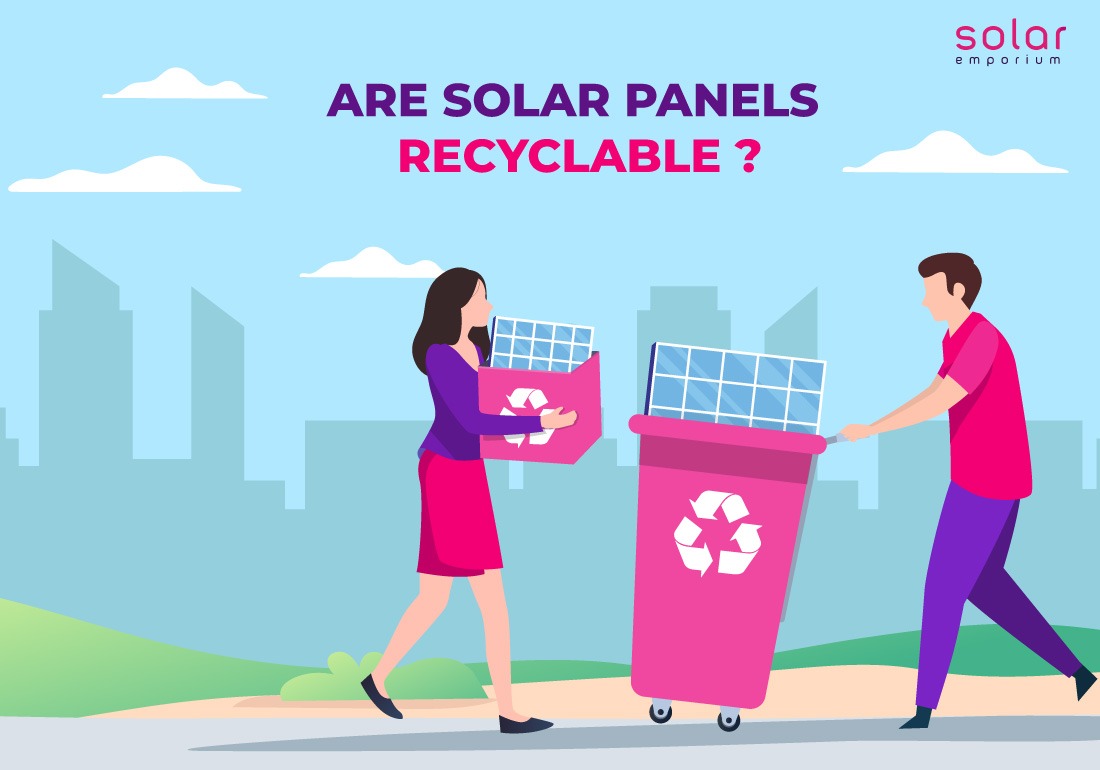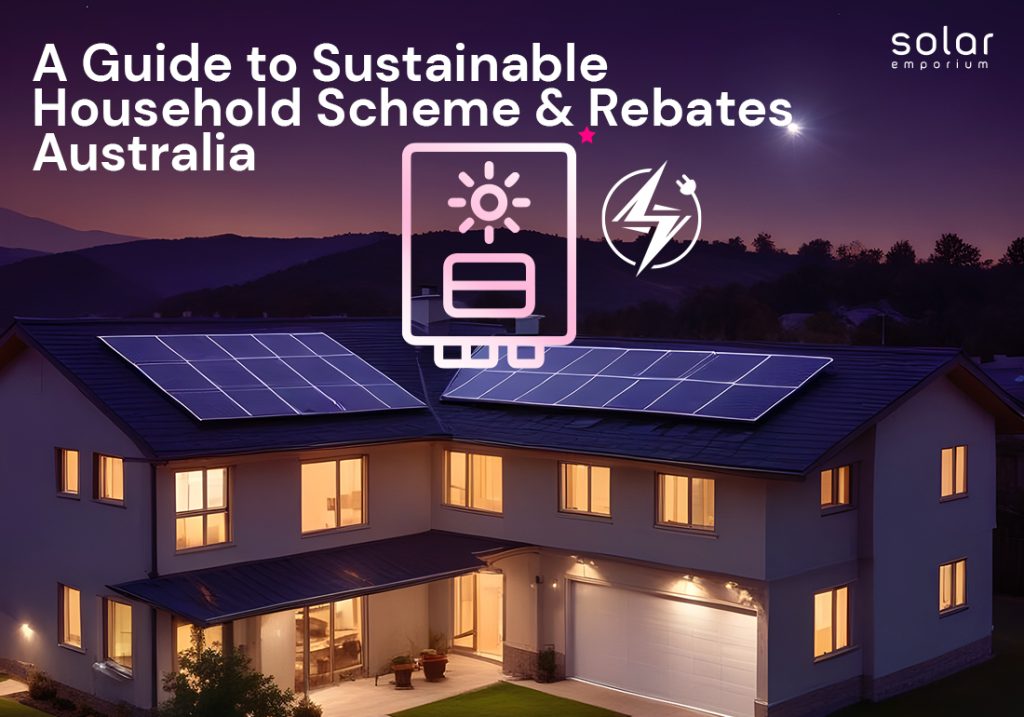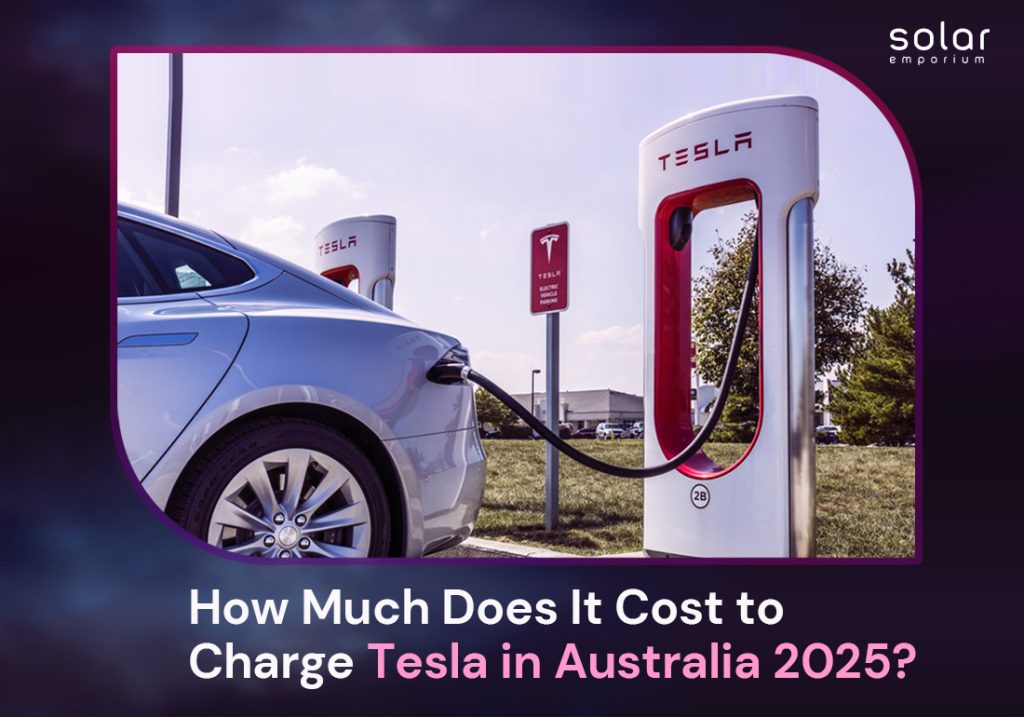In the past decade, people have gravitated towards renewable energy sources the most than at any other time. Among all of the sources, solar panels on a residential scale were welcomed the most. However, when the world seemed to have geared up for renewable energy sources like solar panels, the long-term management of such a change was given little to no thought.
Solar panels have a lifespan of about 25 years to 30 years at max. What happens to all these solar panels after they reach the end of the line? Are solar panels recyclable? To answer it simply, yes, they are recyclable for the most part. On average, 90%- 95% of the photovoltaic cells which are made of silicon are recyclable. But the question remains are they getting recycled even if how easy it is to do so? That is something to work on as soon as we can.
How are Solar PV Panels Recycled?
Let’s take a look at the basic solar model made of silicon. There are essentially two types of solar panels; monocrystalline solar panels and polycrystalline solar panels. Both of the types have an equal ability to get recycled as it’s the way the silicon is laid out that decides the type of solar panels. Other than these two, a separate kind of solar panel is present, which is a thin film solar panel. Thin film solar panels are not made of silicon; rather, they use one of the following-
- Cadmium Telluride (CdTe)
- Amorphous Silicon (a-Si)
- Copper Indium Selenide (CIGS)
This type of solar panel is rarely used for residential purposes as they don’t offer efficiency while the cost soars up pretty high. Usually, thin film solar is used in a commercial setting because of their other advantages, like they use fewer materials to get produced, they deal with shading issues, and low light conditions pretty well. However, still, the prices are not conducive to the outcomes.

For those reasons, we will be limiting today’s discussion to silicon-made solar panels only.
In essence of it, a solar panel is a glass-trapped silicon module that is framed in aluminium. The wires are made of silver and copper. All of which are recyclable using different methods.
The first step to recycling is disassembling the solar panels. The frames, glass, silicone body, and wires get disassembled. Separately they get recycled in large quantities. The entire process does take a lot of big machinery, and the process itself gets a bit expensive, but the price that we will pay without recycling is greater in the long run.
95% of the glass body gets reused after disassembly, and 100% of the metal gets reused. In this case, the thermal processing takes about heat sources that are 500 degrees Celsius to melt down. The silicon is also heated to break it down to its cellular level to make it reusable.
Don’t think that all of this process takes any manual labor, especially the disassembly; rather, there are many detectors and high-level machinery used in such cases.
Are Solar Panels Recyclable in Australia?
On today’s date, there aren’t many full-fledged facilities for solar panel recycling in Australia. However, last year a solar recycling facility did start operating in Melbourne’s north which has been confirmed by their video footage posted on a social media platform. They work in conjunction with Lotus energy, the first company to take such steps in Australia.
The point to be noted here is not 100% of the panel is recyclable in Australia at the moment; still, it has to be sourced from different off-shore facilities. Only about 17% of the recycling is done in Australia, which includes recycling of the metal frame and the junction box. The rest of the body is yet to be managed, but it is also a fact that in Victoria, this type of waste is considered electronic waste and is completely banned from landfill.

In the future, it has been projected that a national working group will conduct a COAG Regulatory Impact Statement (RIS) to evaluate industry-led and co-regulatory solutions for solar panels, as well as the ensuing regulatory and economic implications. A national working committee will advise the federal, state, and territorial governments on the best management strategy.
Check out this end of life management steps to be taken by the International Renewable Energy Agency (IRENA) here.
So, are solar panels recyclable is not the question that is puzzling but when and how efficiently it can be achieved in our country is the current concern. The government is working on several projects and rebate schemes to make solar energy accessible to the mass. The next big thing to figure out is recycling, for which the authority is already constructing prospective plans for the near future.







